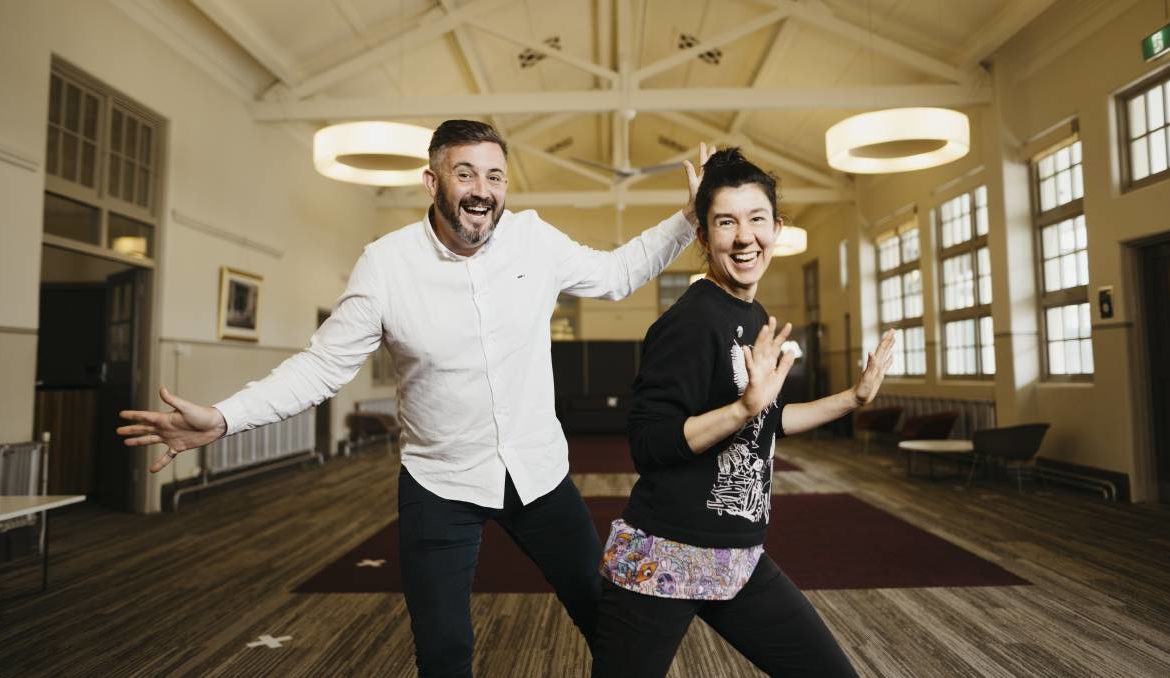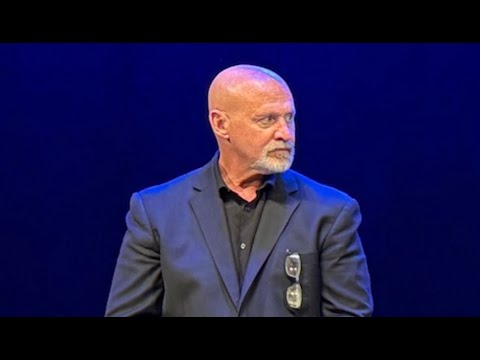news, latest-news, LGBTIQ, LGBTIQ Canberra, Canberra dance club
Ken Vesperman will pour drinks, sell raffle tickets, or pack up chairs – he’s just happy to be a part of Canberra’s first LGBTIQ+ dance club for over-55s. The 60-year-old volunteered for the group’s newly established organising committee after seeing a call-out from HIV community health organisation Meridian. He considers the club an opportunity for people to engage in physical movement and social connection during a difficult year. “There are so many elderly people in society feeling isolation and loneliness, and then you add on being gay or lesbian or transgender, and then you add the year of COVID, you get a lot of people feeling very alone,” he said. Social connection is what motivated arts producers Tristan Meecham and Bec Reid to set up the first elders’ dance club in Melbourne in 2016. It’s now a worldwide trend, with the pair’s company All The Queens Men supporting up to 40 clubs in places as far-flung as Scotland and Hong Kong. Mr Meecham said the clubs use dance to bring people together. “It’s the old traditions of tea dances, and queer traditions, coming together in an afternoon of good food and catering and joy,” he said. After six months running clubs online, he was excited to return to Canberra, where he grew up, for the first in-person dance event at the Ainslie Arts Centre last weekend. “A lot of people are coming out for the very first time, so we want to make sure people feel loved and supported,” he said. “It’s gentle, comfortable, lots of socialising, with drinks and toasts and speeches and opportunities to break out into dance. It’s a chance to build community over a period of time.” Meridian deputy chief executive Joshua Anlezark said the club would allow participants to fully express themselves in the face of discrimination, which can force older LGBTIQ+ people to hide who they are. “We know that LGBTIQ+ people that are ageing have often had experiences of discrimination and stigma around their identity,” he said. “Same-sex couples wanting to access residential care services too often have to justify their relationship to get access to the service, or pretend to be friends and visit their partner under the guise of friendship. “It’s a really legitimate concern about whether they’ll be safe or not, whether their relationship will be respected or not.” READ MORE: Volunteers like Mr Vesperman believe the club offers an important opportunity for intergenerational members of the LGBTIQ+ community to mix, pass on knowledge, to understand the challenges younger members face. “There’s always been huge gaps in gay men relating to each other from the different decades, because the decades have changed so rapidly in the last couple of generations,” he said. Mr Meecham said the dance club was open to all. “The vibe is really around learning people’s history,” he said. “Younger men are totally oblivious to HIV/AIDs. I saw a lot of people die in the first part of the ’80s. Now, it’s ‘You know somebody who died?'” Mr Meecham said the dance club is open to all – no one will be turned away for their age, and allies are welcome and encouraged to attend. “The vibe is really around learning people’s history and making connections over time,” he said. In Melbourne, where a 100-member-strong club has met monthly for five years, members have formed long-standing friendships. Mr Anlezark said he hoped the Canberra club could become self-sustaining and ongoing, to serve that same purpose for older members of the LGBTIQ+ community. Mr Vesperman said he was looking forward to opening the doors of the first event next month. “I know it’s a cliché, but I hope for a greater sense of community and connectedness,” he said.
/images/transform/v1/crop/frm/j2iwCiKfwhVWJky39Vsdpt/4a0b47b7-e8ef-4e82-b2e8-f235e9737086.jpg/r3_400_4998_3222_w1200_h678_fmax.jpg
Ken Vesperman will pour drinks, sell raffle tickets, or pack up chairs – he’s just happy to be a part of Canberra’s first LGBTIQ+ dance club for over-55s.
The 60-year-old volunteered for the group’s newly established organising committee after seeing a call-out from HIV community health organisation Meridian.
He considers the club an opportunity for people to engage in physical movement and social connection during a difficult year.
“There are so many elderly people in society feeling isolation and loneliness, and then you add on being gay or lesbian or transgender, and then you add the year of COVID, you get a lot of people feeling very alone,” he said.
Social connection is what motivated arts producers Tristan Meecham and Bec Reid to set up the first elders’ dance club in Melbourne in 2016.
It’s now a worldwide trend, with the pair’s company All The Queens Men supporting up to 40 clubs in places as far-flung as Scotland and Hong Kong.
Mr Meecham said the clubs use dance to bring people together.
“It’s the old traditions of tea dances, and queer traditions, coming together in an afternoon of good food and catering and joy,” he said.
After six months running clubs online, he was excited to return to Canberra, where he grew up, for the first in-person dance event at the Ainslie Arts Centre last weekend.
“A lot of people are coming out for the very first time, so we want to make sure people feel loved and supported,” he said.
“It’s gentle, comfortable, lots of socialising, with drinks and toasts and speeches and opportunities to break out into dance. It’s a chance to build community over a period of time.”
Meridian deputy chief executive Joshua Anlezark said the club would allow participants to fully express themselves in the face of discrimination, which can force older LGBTIQ+ people to hide who they are.
“We know that LGBTIQ+ people that are ageing have often had experiences of discrimination and stigma around their identity,” he said.
“Same-sex couples wanting to access residential care services too often have to justify their relationship to get access to the service, or pretend to be friends and visit their partner under the guise of friendship.
“It’s a really legitimate concern about whether they’ll be safe or not, whether their relationship will be respected or not.”
“There’s always been huge gaps in gay men relating to each other from the different decades, because the decades have changed so rapidly in the last couple of generations,” he said.
Mr Meecham said the dance club was open to all.
“The vibe is really around learning people’s history,” he said.
“Younger men are totally oblivious to HIV/AIDs. I saw a lot of people die in the first part of the ’80s. Now, it’s ‘You know somebody who died?'”
Mr Meecham said the dance club is open to all – no one will be turned away for their age, and allies are welcome and encouraged to attend.
“The vibe is really around learning people’s history and making connections over time,” he said.
In Melbourne, where a 100-member-strong club has met monthly for five years, members have formed long-standing friendships.
Mr Anlezark said he hoped the Canberra club could become self-sustaining and ongoing, to serve that same purpose for older members of the LGBTIQ+ community.
Mr Vesperman said he was looking forward to opening the doors of the first event next month.
“I know it’s a cliché, but I hope for a greater sense of community and connectedness,” he said.







